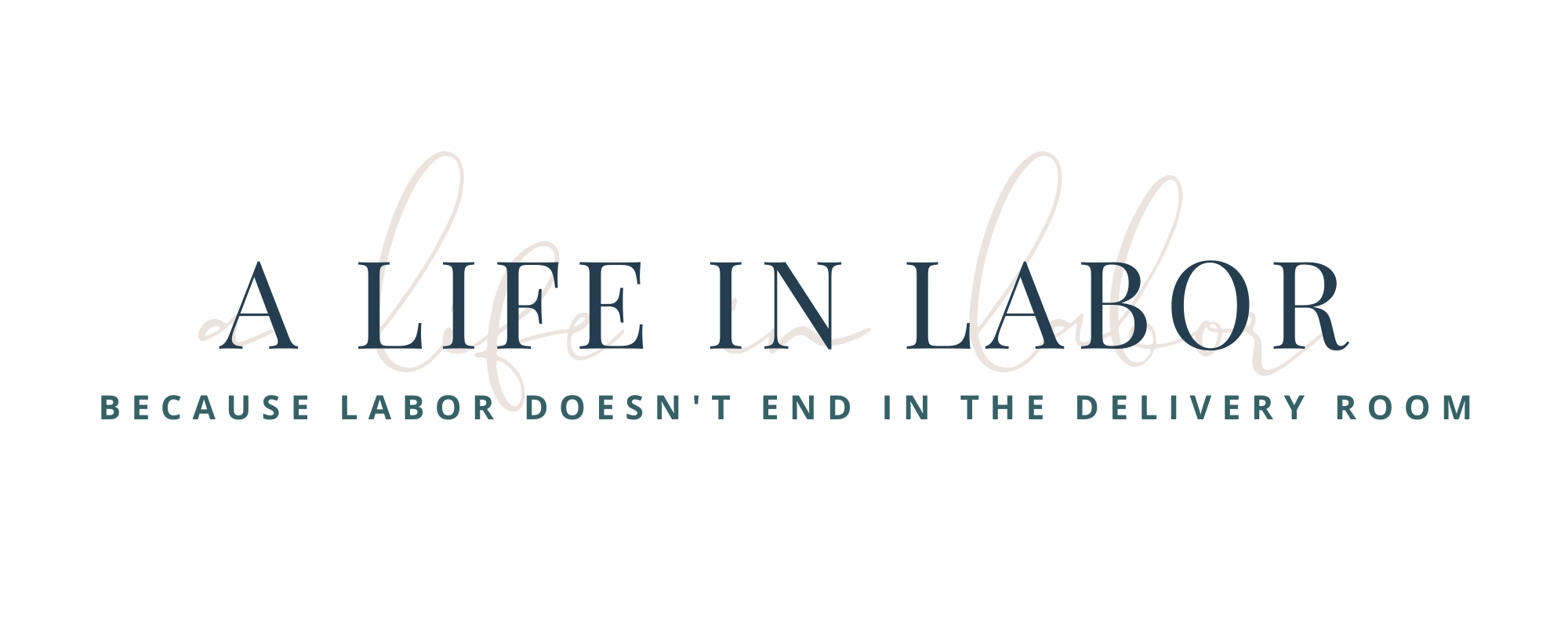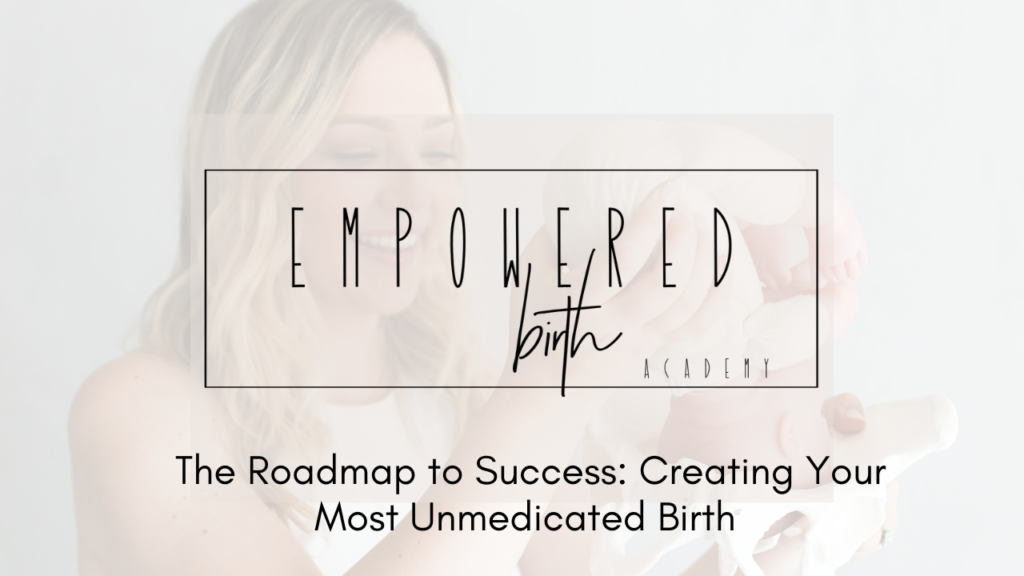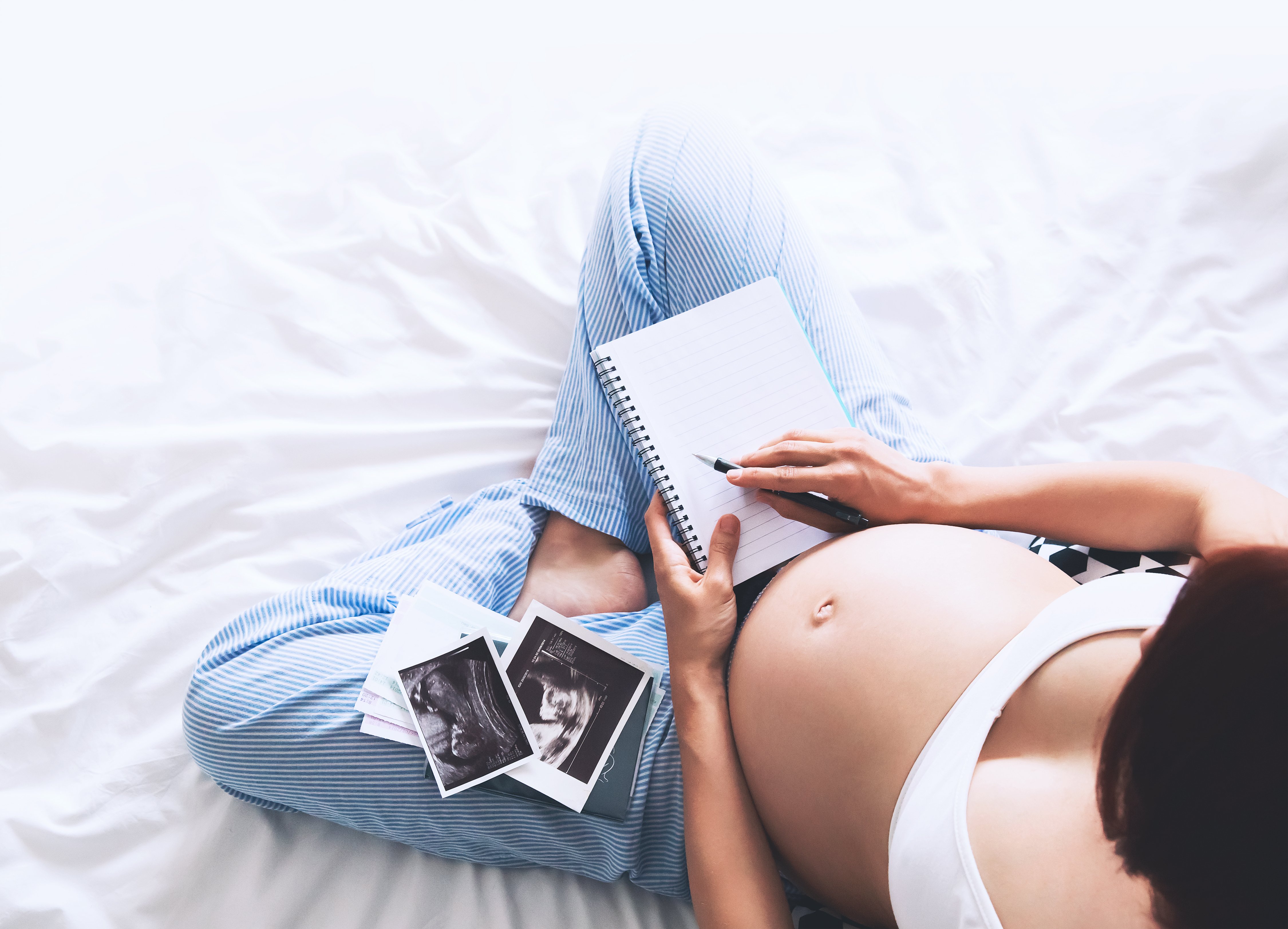Important Postpartum Tips: How to Take Care Of Yourself After Baby
Have you started to prepare yourself for the postpartum period and noticed that it seems like all you have to worry about postpartum is bleeding and sore nipples? If only it were that easy. Understanding how to take care of yourself during the first few weeks or months postpartum is extremely important. Although the postpartum recovery symptoms are important to address, there are many other important postpartum tips that you need to know too.
In this post I want to you look past the symptoms so much and focus on truly taking care of yourself.
If you haven't set up your postpartum recovery kit yet, head on over to this post that goes into exactly what you'll need to have a smooth postpartum recovery. If you've already been there and done that, these postpartum tips are a very important next step.

This post may contain affiliate links. Learn more here
Please note: The views on this website are personal opinions only and do not represent the opinions or policies of any provider or institution that I am affiliated with. I am not giving medical advice. Information on this website is not intended to diagnose, or treat any form of any disease. This article is for informational and entertainment purposes only. I am only telling you what my experiences are. Please refer to my Disclaimer Page for more information
Postpartum Tips
I am lucky that I had the skinny on postpartum tips before I had my first baby so I was stocked up with all of the postpartum recovery essentials and all of the newborn essentials before I came home with my new baby. But as I already mentioned, this postpartum period is about a lot more than just changing pads and diapers all day.
It's so much more than that and it can often feel overwhelming to an unexpecting new mother.
In order to prepare ahead of time, these are some of my favorite postpartum tips to share with new and expecting mamas.


1. Accept Help When It's Offered
You may have heard already that you should “ask for help when you need it”. That is really great advice. We all need help postpartum so it's incredibly important that you ask for it when you need it and not be ashamed of needing help. You probably picture this person being someone you're close with like your mom or your sister.
The more challenging task though, is to accept help that's offered from someone you weren't expecting to ask.
For example when your co-worker offers to bring you lunch or your friend offers to hold the baby while you take a shower, your job is to really consider accepting the help instead of always saying “no, it's fine, I've got it all taken care of”.
None of us have it all taken care of. Let people help you even when it's unexpected.
2. Talk To Other Moms
There are going to be moments that surprise you, shock you, or intimidate you during this new stage. Talk to moms who've been there before to see what they did during these times or how they coped.
If you are one of the first of your friends to start a family and you don't feel like you have a community of moms at your disposal, jump into a community full of moms online that can give you help and reassurance when you need it.
3. Prepare Your Spouse
Your spouse might have these grand ideas of being as helpful as possible and always making sure you're comfortable. But then when the time comes they find that they don't know what they are supposed to be doing, how they can help, or what you need.
This is a really common feeling that dads around the world are all experiencing together. Your spouse may have never done this before and maybe didn't quite realize how hard it was going to be. Now that the two of you are thrusted into parenthood together, it's important that you both help each other out with as much communication as possible.
Let your spouse know what you're thinking and feeling and exactly how he can help. This is new for him too and he probably feels as lost as you do.
In order to help yourself out as much as possible, make a list of things that you would like to take off your plate during this postpartum period and give it to your spouse.
4. Rest
You just went through a heck of a lot during your labor and birth (no matter what kind of delivery you ended up with) and you need your rest.
I will never (never!) say those dreaded words that sound like “Sheep when the baby sheeps” but I will definitely tell you to rest when the baby sleeps.
Whatever rest means to you – do it.
Whatever makes you feel like you just took a load off and decreased your stress level or reset your pressure gauge, do that.
Taking care of yourself at the same time that you're taking care of a newborn baby can be one of the toughest things a new mom does.
Each time your baby is sleeping think to yourself “What will make me feel better?” If just putting away those dishes really quick will make you feel better then do it! So everyone else is telling you not to clean? So what? If you cannot relax with a sink full of dishes then do it. Do what makes you feel good.
If taking a 20 minute nap is going to make you feel worse afterwards then don't do it. All that I ask is that you consciously think about yourself first for a while. Ask for help when you need it so that you don't do the things that you “have to” do or “should” do but things that you need to do for yourself.
5. Put Away the Hand Held Mirror
I know you're curious. I understand that you just want to take a little peek. But please do not take a hand held mirror and direct it towards your girlie parts.
Most likely you had some sort of tear, episiotomy, stitches, or some gnarly hemorrhoids when you delivered your baby.
It's natural to want to check on it's progress to see if things are looking about the same or like a train ran through you. Well…
I caution you, mama. Please do not look down there with a mirror until at least 4 weeks postpartum.
Yes, everything will go back to looking exactly as it used to for most women. Yes, you will heal beautifully and you probably have nothing to worry about. But just in case you're checking on it a little too soon… just don't.

6. Stock Up
Get all of your postpartum essentials together and make a postpartum recovery kit that will help you get comfortable and recovery quicker.
Download the free checklist below to make sure that you're prepared.
Once you're stocked up on everything you'll need for yourself, make sure you are also stocked up on everything that you'll need for baby as well.
7. Elastic Pants
Vaginal birth or C-section, it doesn't really matter. You're not going to want to wear pants that are tight around the waste.
Invest in some comfortable pants that are easy to move around in when you're holding a baby and lounging on the couch trying to get that baby to latch all day. Not to mention all of the trips to the bathroom to change your pad, you know? Buttons? Not a chance.
8. Lightweight Pajamas
Oh, no one told you that you're going to have night sweats for the next few months? Oh yeah, that's totally happening.
You have a lot of hormones shifting and changing in your body right now. Your body just doesn't know what to make of all these changes. As it tries to regulate itself, you're probably going to be experiencing moments where you swear the heater must be on because you're waking up in a puddle of sweat.
Don't worry, you're not pre-menopausal. Those hot flashes are normal and they will go away along with most of the other inconveniences of the fourth trimester.
9. Button-Up Pajama Top
It's either this or a maternity cami for sleep. Although T-Shirts are great for sleeping when you were living that pre-mom life, easy access is where it's at when you're nursing your baby at all hours of the night. And let's be honest, you're probably going to be wearing it all day too.
10. Prep Some Padsicles
A padsicle is a frozen pad with some extra magic mixed in. You apply the frozen dream come true in your vaginal area to decrease inflammation and reduce pain and discomfort after delivery.
Padsicles can really be a game-changer during your postpartum recovery. They will help you heal and give you pain relief down in your nether regions after the journey your lady parts have just experienced.
I have created a free PDF guide for you to walk you through step-by-step how to make these healing wonders. You can grab it here.
11. Stay Hydrated
Postpartum recovery + breastfeeding can really take it's toll on the body. It's hard work to say the least.
Keep a large water bottle at your bedside, in your breastfeeding caddie, in the car, in your purse, and anywhere else that you hang out. You're going to want to stay hydrated around the clock so that you can heal and continue to produce that liquid gold for your new baby.
12. Give Your Body a Break
Too much movement can cause discomfort and pressure in areas that are supposed to be healing. If you find that you're suddenly swollen again or suddenly bleeding again after it had subsided already, you might be over-doing it.
Try to rest your body and give yourself grace when it comes to getting up into the world and getting back to your regular routines again.
There will be a time and place for exercise. For now though, allow yourself to be still.
13. Expect Tears
It's not just baby that will be the one crying for seemingly no reason at all. You're going to be extra emotional for a few weeks after birth. Everything may affect you differently than you thought it would.
You may be more sensitive to criticism, harder on yourself when it comes to breastfeeding, or uncomfortable with parenting advice from friends. Each of these things might provoke tears that you didn't know were coming.
Prepare for some overly emotional moments and give yourself grace when they are harder than expected. You've got this. You're doing great. You CAN do this.
Trust me…you need to hear that.
14. Stay Regular
After birth, your body might have some trouble having that first poop. It might even take you two or three days before you feel the urge.
Labor and birth traumatizes the bowels and your ab muscles are weakened by pregnancy. That, plus any narcotic pain relief is a bad mix when it comes to staying regular.
Many women also have the fear or popping a stitch or having pain near or around their laceration, episiotomy, or their hemorrhoids. That fear makes you feel like you don't want to go and you'd rather just hold it in. Unfortunately, that just makes matters worse.
In order to make your first bowel movement as smooth as possible, keep these things in mind:
- Walking can help (listen to your body)
- When you feel the urge, go!
- Stay very hydrated. Drink at least 8 glasses of water per day.
- Eat foods rich in fiber such as fruits, veggies, and whole grains.
- Let go of the fear of ripping your stitches. That would be a very rare occurrence so don't stress about it.
15. Address Your Emotions
After giving birth, your hormones will go a little haywire. Many women experience baby blues in the first couple of weeks postpartum.
Baby blues might feel like sadness, tearfulness and feelings of overwhelm or frustration.
If these feelings last longer than two weeks or feel like they are getting worse instead of better, you might be experiencing a postpartum mood disorder. Don't be ashamed. It's more common than you think. Talk to your partner and people who love you about your feelings and get help from your provider.
16. “Take ten”
Sometimes you just need a break. It's not that you're not loving every waking moment with your new baby (and there are a lot of those) but you just need ten minutes to turn your brain off and take care of yourself.
During these ten minutes, I advise that you do something that you cannot do while holding or nursing your baby but aren't basic hygiene (a shower doesn't count) or necessities (eating a meal also doesn't count). Instead, choose other important things such as:
- Taking a Sitz bath
- Taking a bubble bath
- Do your devotional
- Sit back, relax, and put your headphones in and listen to music you love
- Write in your journal
If your partner can't handle the baby (crying or not) for ten minutes while you heal your hemorrhoids in a sitz bath then he needs to buck up. You have been holding this baby for the last 9 months and now you need ten minutes where he can figure it out.
Of course you should feed, burp, change, and make the baby comfortable before passing that sweet little bundle of joy off for ten minutes. But if the baby is fed and dry but cries for you anyway, trust that your partner can figure it out for ten minutes.
- Related Read: Why “Me Time” For Moms Needs To Be Top Priority
Extra Postpartum Tips
As you take care of yourself postpartum, you might be wondering when you can just get back to your normal self again. That's so normal, mama. I totally understand. It's just really important that you take the time you need before jumping into your normal daily activities. Here are some more postpartum tips inspired by questions moms are commonly asking about what to expect postpartum.
When can I drive after giving birth?
In order to give your body the rest it needs, it's important to avoid driving for approximately two weeks if you had a vaginal birth. If you had a C-section, you should wait to get back behind the wheel for about 4 weeks.
There is reason behind the madness though. When you push a baby out vaginally, you use a lot of the same muscles as you do when you drive. You may not realize it now, but getting behind the wheel after birth may cause a lot of discomfort.
After 2-4 weeks, test out your ability to drive with small distances.
When can I shower after giving birth?
If you've had an uncomplicated labor and vaginal birth and have remained healthy, you'll likely be able to shower shortly after birth – usually within hours or at least the same day. If you had any significant bleeding during your delivery, you may be asked to wait 24 hours or more before you take a shower.
If you had a C-section, you'll have to wait until you're up and moving around before you can hop in the shower. In a day or two, you'll be able to get in the shower and remove your dressing under the warm water. Hang in there, girl, it won't be too long.
When can I have sex after giving birth?
At your six week postpartum visit with your doctor, they will do a pelvic exam to examine your repair and assess how well you've recovered. At this appointment, your doctor should be able to give you the green light to hit the sheets with your hubby again.
Just because six weeks is the magic number for many people does not meant that it's the magic number for you. If you are not comfortable at 6 weeks postpartum, it is appropriate for you to talk to your partner about starting slow and moving into the sexual realm over a little bit more time.
On the flip side, if you feel ready for sex before the sixth week, it can also be appropriate if your recovery has been uncomplicated and smooth, you're not having pain or bleeding, and you're feeling emotionally ready.
When can I workout after giving birth?
Remember that your body suffered some trauma a short time ago. You've either had major abdominal surgery or pushed a 7ish pound baby out of your body after hours of hard labor.
Give yourself time before hitting the gym. Start slow with short walks around the neighborhood and then slowly work your way up to your usual routine.
It should be 4-6 weeks of rest and recovery before even thinking about heavy lifting, ok? Take care of yourself, mama.
My Best Postpartum Tips
I hope you got something out of my best postpartum tips here in this post. I know that motherhood can be intimidating when you feel like you don't know what to expect.
That is why I am constantly trying to share my knowledge with you and get you as prepared as possible for labor, birth, postpartum, breastfeeding and all of that new-motherhood-goodness.
If you ever have any questions about these topics (including getting more postpartum tips), head over to my instagram because I do Instagram Story Q&A every week.
Leave a comment below with the best postpartum tips you've received

What To Read Next:
- 17 Burning Breastfeeding Questions That All Nursing Moms are Asking
- Baby Registry Tips & Tricks That Every First Time Mom Needs To Know
- A Complete Pumping Guide To Help Your Build Your Breastmilk Stash
- How To Prevent Diaper Rash In 5 Simple Steps
- 10 Common Baby Registry Items That First Time Moms Are On The Fence About












